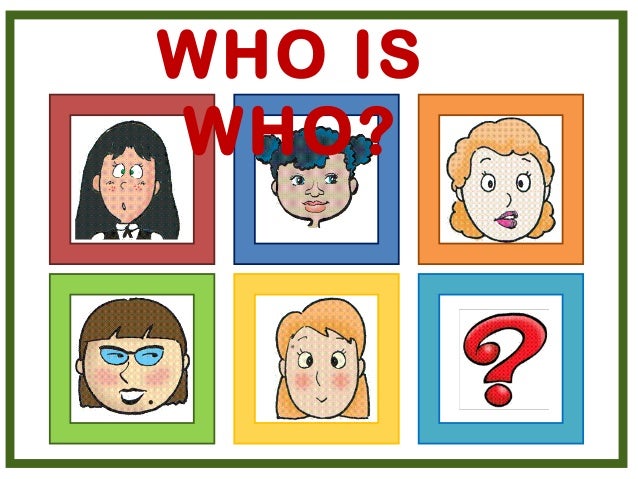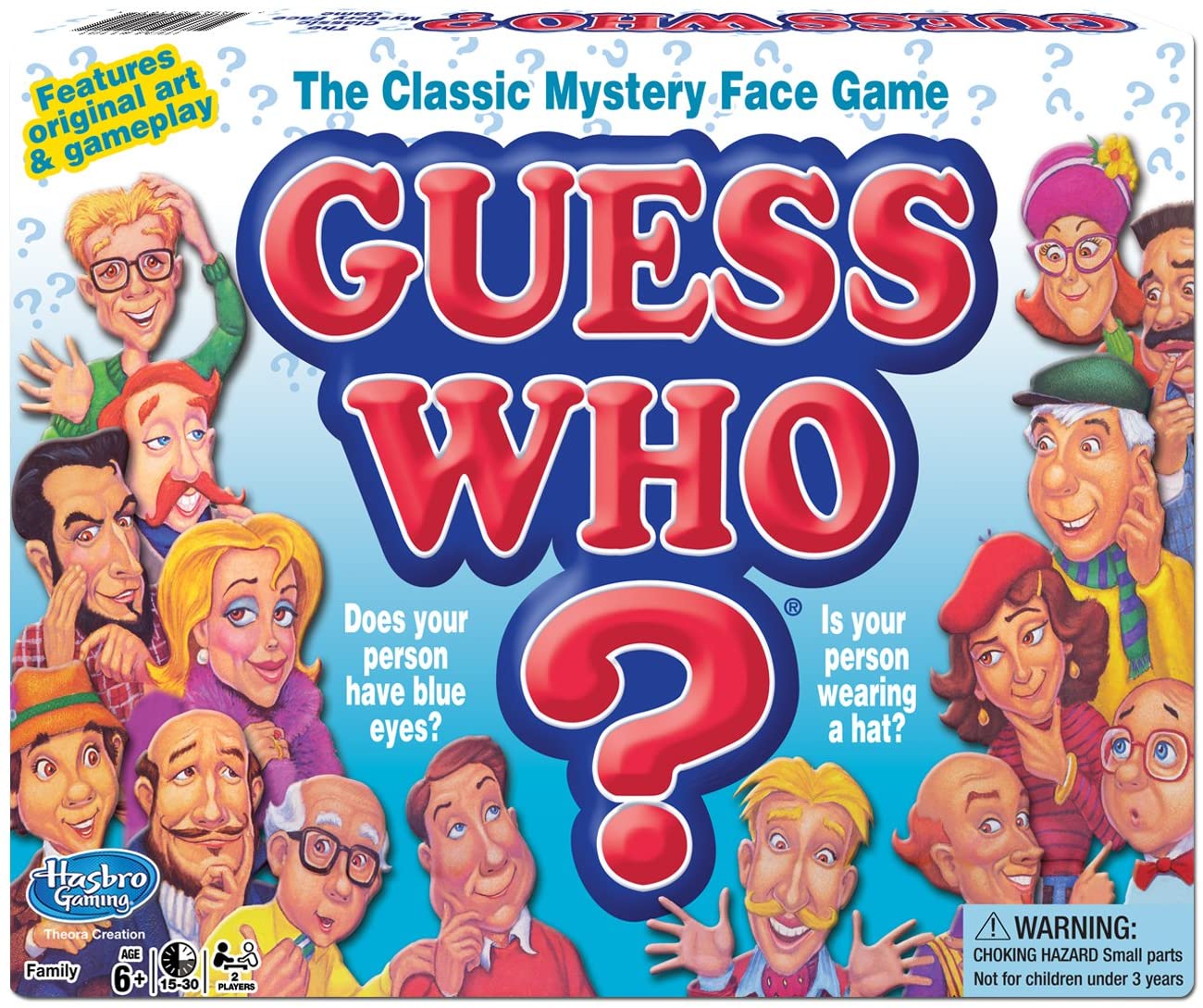The Enduring Appeal Of Online "Who Is Who" Games: A Comprehensive Exploration
The Enduring Appeal of Online "Who Is Who" Games: A Comprehensive Exploration
Related Articles: The Enduring Appeal of Online "Who Is Who" Games: A Comprehensive Exploration
Introduction
With great pleasure, we will explore the intriguing topic related to The Enduring Appeal of Online "Who Is Who" Games: A Comprehensive Exploration. Let’s weave interesting information and offer fresh perspectives to the readers.
Table of Content
- 1 Related Articles: The Enduring Appeal of Online "Who Is Who" Games: A Comprehensive Exploration
- 2 Introduction
- 3 The Enduring Appeal of Online "Who Is Who" Games: A Comprehensive Exploration
- 3.1 A Brief History: From Board Games to Online Platforms
- 3.2 Understanding the Essence of Online "Who Is Who" Games
- 3.3 Exploring the Diverse Variations of Online "Who Is Who" Games
- 3.4 Unveiling the Benefits of Engaging in Online "Who Is Who" Games
- 3.5 FAQs: Addressing Common Questions about Online "Who Is Who" Games
- 3.6 Tips for Mastering Online "Who Is Who" Games
- 3.7 Conclusion: The Enduring Appeal of Online "Who Is Who" Games
- 4 Closure
The Enduring Appeal of Online "Who Is Who" Games: A Comprehensive Exploration

The "Who Is Who" game, a staple of social gatherings and family game nights, has successfully transitioned into the digital realm, captivating players with its blend of deduction, strategy, and social interaction. This article provides a comprehensive exploration of online "Who Is Who" games, examining their history, variations, benefits, and their enduring appeal in the digital age.
A Brief History: From Board Games to Online Platforms
The "Who Is Who" game, also known as "Guess Who?," has a rich history dating back to the mid-20th century. Its origins can be traced to a board game created by the Parker Brothers in 1979. This classic game featured a grid of faces, each representing a unique character with specific attributes like gender, hair color, and glasses. Players would take turns asking yes-or-no questions to eliminate possibilities and identify their opponent’s chosen character.
The transition of "Who Is Who" games to the online sphere occurred naturally, driven by the increasing popularity of internet gaming and the desire to recreate the familiar experience in a digital format. Today, a wide variety of online platforms offer "Who Is Who" games, ranging from simple browser-based versions to sophisticated multiplayer games with intricate character designs and diverse gameplay mechanics.
Understanding the Essence of Online "Who Is Who" Games
At its core, the online "Who Is Who" game retains the fundamental principles of its board game predecessor. Players are presented with a selection of characters, each with distinct attributes, and the objective remains the same: to identify your opponent’s chosen character by asking strategic questions. However, the online versions introduce various enhancements and complexities, enriching the gameplay experience.
Key Elements of Online "Who Is Who" Games:
- Character Selection: Players are typically presented with a diverse pool of characters, often themed around specific categories like professions, historical figures, or fictional characters.
- Questioning System: Players can ask questions about their opponent’s character, with the format often varying between yes-or-no questions, multiple-choice options, or open-ended prompts.
- Elimination Process: Each question asked narrows down the possible characters, eliminating those that do not match the answer.
- Gameplay Mechanics: Online versions often incorporate features like timers, point systems, and special abilities, adding layers of strategy and competition.
- Social Interaction: Many online "Who Is Who" games offer multiplayer modes, allowing players to engage in real-time competition or collaborative gameplay.
Exploring the Diverse Variations of Online "Who Is Who" Games
The online realm has witnessed a proliferation of "Who Is Who" game variations, each catering to different interests and preferences. Some of the most popular variations include:
- Themed Games: These games focus on specific topics, such as celebrities, historical figures, or fictional characters from popular franchises.
- Multiplayer Games: These games allow multiple players to compete simultaneously, fostering a social and competitive environment.
- Customizable Games: Some platforms allow players to create their own characters and customize the game’s rules and settings.
- Educational Games: These games are designed to teach specific skills or knowledge, incorporating educational content into the gameplay.
Unveiling the Benefits of Engaging in Online "Who Is Who" Games
The popularity of online "Who Is Who" games extends beyond their entertaining nature. Engaging in these games can provide a range of benefits, including:
- Cognitive Enhancement: The game’s reliance on logic, deduction, and strategic thinking can sharpen cognitive skills and improve problem-solving abilities.
- Social Interaction: Multiplayer games foster social interaction and communication, allowing players to connect with others and engage in friendly competition.
- Stress Relief: The game’s lighthearted nature and focus on strategy can provide a welcome distraction from daily stress.
- Educational Value: Themed games can introduce players to new information and expand their knowledge base.
FAQs: Addressing Common Questions about Online "Who Is Who" Games
1. How do I find online "Who Is Who" games?
Numerous websites and app stores offer online "Who Is Who" games. Popular platforms include Google Play, Apple App Store, Facebook Games, and various online gaming websites.
2. Are online "Who Is Who" games free to play?
Many online "Who Is Who" games are free to play, with optional in-app purchases for additional features or content. Some games may require a subscription or a one-time purchase to access all features.
3. What are the best online "Who Is Who" games?
The best online "Who Is Who" games depend on individual preferences. Some popular options include "Guess Who?," "Who Am I?," and "Celebrity Guess Who?"
4. Can I play online "Who Is Who" games with friends?
Many online "Who Is Who" games offer multiplayer modes, allowing players to compete or collaborate with friends.
5. Are online "Who Is Who" games suitable for all ages?
Most online "Who Is Who" games are suitable for all ages, with content appropriate for both children and adults. However, some games may contain mature themes or require a certain level of reading comprehension.
Tips for Mastering Online "Who Is Who" Games
- Start with the basics: Familiarize yourself with the game’s rules and mechanics before diving into advanced strategies.
- Ask strategic questions: Focus on questions that eliminate a large number of possibilities, rather than those that only narrow down a few characters.
- Pay attention to details: Observe the character attributes and use them to formulate informed guesses.
- Practice regularly: The more you play, the better you will become at understanding the game’s nuances and developing effective strategies.
- Don’t be afraid to experiment: Try different questioning techniques and strategies to find what works best for you.
Conclusion: The Enduring Appeal of Online "Who Is Who" Games
Online "Who Is Who" games have successfully captured the essence of the classic board game while enhancing the experience with digital innovations. These games offer a blend of entertainment, cognitive stimulation, and social interaction, making them an enduring favorite for players of all ages. Whether you seek a casual distraction or a challenging strategic game, the online "Who Is Who" genre provides a diverse range of options to explore. As technology continues to evolve, we can expect even more innovative and engaging versions of this timeless game to emerge, ensuring its continued popularity for generations to come.








Closure
Thus, we hope this article has provided valuable insights into The Enduring Appeal of Online "Who Is Who" Games: A Comprehensive Exploration. We hope you find this article informative and beneficial. See you in our next article!